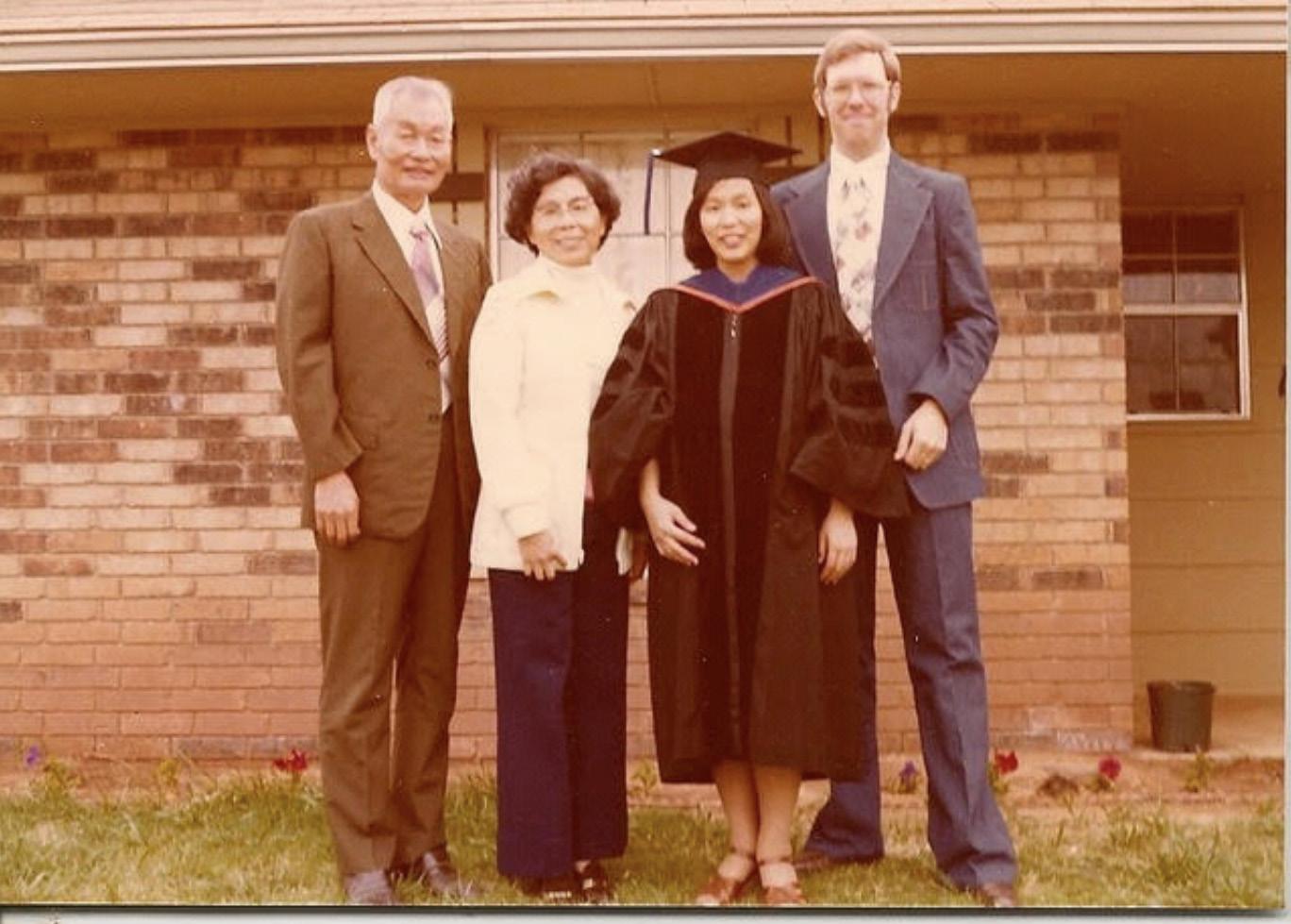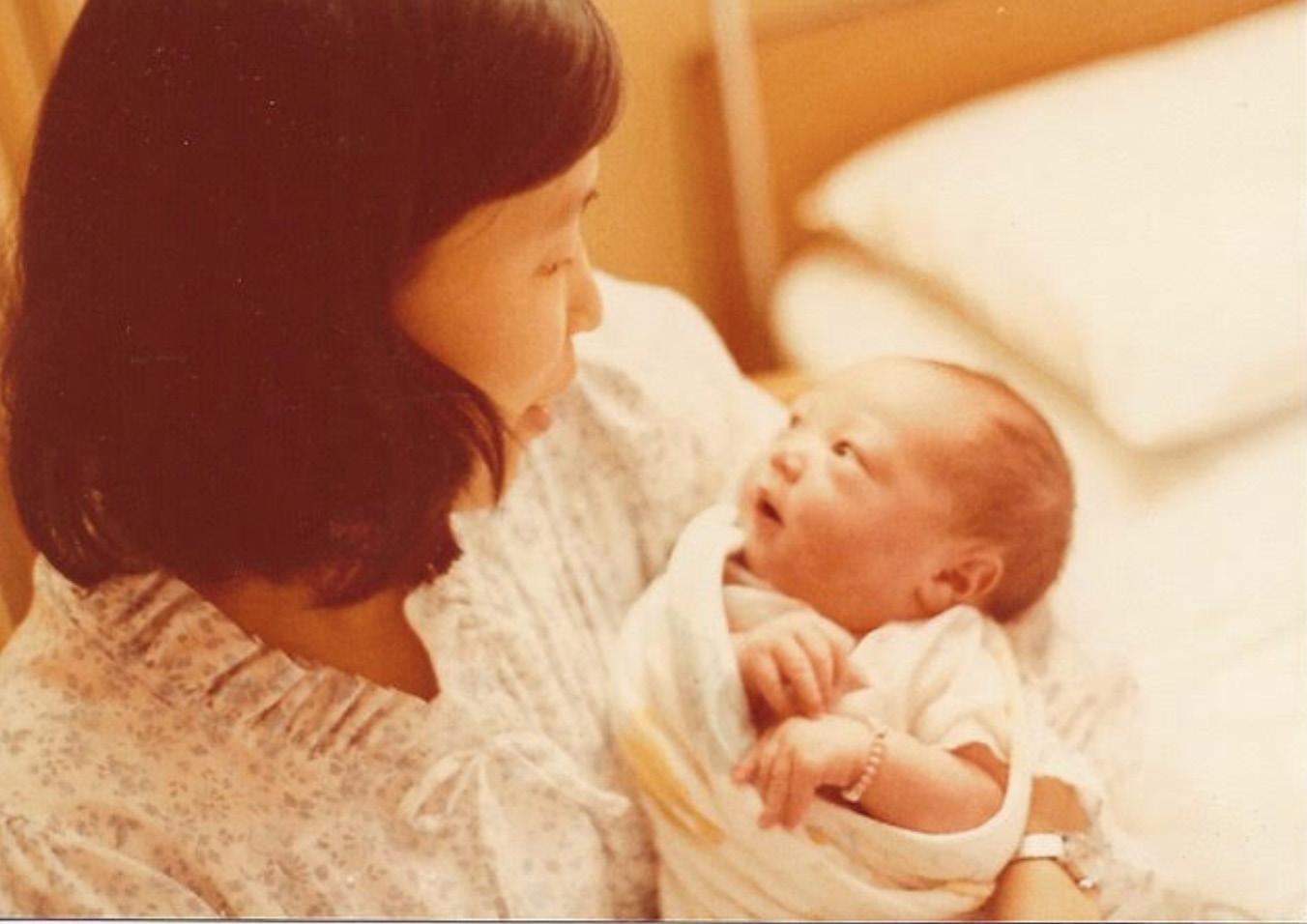
8 minute read
My Mother
By Hur-shiu Webb - Guest Writer
As I reflected on my own identity and thought about what I wanted to say, I kept coming back to the one person in my life who has probably had the greatest impact on my identity as a woman– my mother, Dr. Shwu-Eng Hwang Webb. I marvel at my mother’s journey and what brought her to me and my brother. How did a girl from Taiwan end up finding her life partner in rural Arkansas? The answer lies not only in some pretty wild serendipity, but also in my mother’s ability to exuberantly embrace the circumstances of every situation she finds herself in.
Before my mother was my mother, or a “Dr.” or a “Webb”, she was 黃 (Hwang, Shwu-Eng) of Chia-Yi, Taiwan, fourth child of five siblings and the only girl. Growing up with three older brothers and one younger brother greatly shaped my mother’s personality. As one of the younger children, she did not have the pressure that her oldest brothers had, and as the only girl she also did not have the same expectations on her as her brothers. Furthermore, she wasn’t the youngest child, which gave her even more autonomy– she wasn’t constantly bossed around by everyone as her youngest brother was. Also, (as she insists I always keep in mind), her parents were very open minded and progressive, and she did not have the same expectations of her as her female peers did. Her parents, who were deeply invested in their children’s education, were clear that my mother should prioritize her education above all else– including household chores and finding a suitable husband. She often laughs about how she didn’t know how to cook anything when she came to the States for graduate school and my dad had to show her the most basic cooking skills. (I feel like it is important to note that she did learn to cook when she found it necessary, and I grew up knowing her to be an amazing cook.)
With most of the pressure of the major responsibilities taken off of her and placed on her older brothers, and without the pressure of being bossed around by her siblings since she was a girl, my mother was free to focus on her learning. She learned important skills such as how to cram just enough for a test and how to charge treats for herself from the local convenience store. One of her favorite stories is about how, after staying up all night cramming for a test, she would treat herself by going to the local convenience store and getting goodies and charging them to her parent’s account. When her parents found out about how much she had charged their account, instead of chewing her out, they scolded her older brothers for not monitoring her more closely.
My mother’s oldest brother, Kell, did not have my mother’s aptitude for taking tests. He had to take the national exam three times before getting into a university that was acceptable to their parents. Because of this, he did not start undergraduate school until nearly the time their third oldest brother was about to start. My grandfather was insistent that his children go to school in the US, so after completing undergrad, Kell started to apply to graduate programs in the US. He first applied to MIT and immediately got rejected. (Kell’s oldest daughter, Ruth, ended up attending and graduating from MIT twenty years later.) Kell did not know much about any other universities in the US, so after getting rejected from MIT, he proceeded to apply to state schools alphabetically. He was rejected from Alabama, got a nice offer from Alaska– but it was too cold for a kid from Taiwan, and so he settled on University of Arkansas. His siblings all followed. That’s how, in 1972, 黃 from Chia-Yi became Shwu-Eng Hwang in Fayetteville, Arkansas as part of the econ grad program with my father.
I often ask my mother about what it was like for her to be new to the States, with very little fluency in English, in the rural south, and one of very few women in a male dominated program. She always laughs and instead of seeing her race, nationality, and gender as a challenge in the situation, she claims it as an advantage. Her outgoing personality and cheeky charm caught her classmates and professors off guard. They expected a docile china doll, but what they got was a loud, firecracker of a woman, who was not afraid to tease her professors or compete (and win!) in eating contests against her male classmates. She was shocked at how American women and BIPoC Americans were treated, but as she did growing up, felt as though she was mostly excluded from that treatment. She talks about how her female classmates resented her because they also saw that she was somehow exempt from the same treatment they were receiving.
As I said, my parents met in the economics graduate program at University of Arkansas. I used to ask my mother how they met and she would scoff and say, “oh your dad wouldn’t stop following me around.” In reality, however, there was a lot more behind their courtship and eventual marriage. Though my mother’s brothers were all in the States, they had all found Taiwanese spouses. When my mom and dad started dating, her brothers definitely had some concerns. They were worried how it would be perceived if my mother ended up with an American man. “Only bar girls marry American men” my mom said to me as if that made all the sense in the world. Her two youngest brothers went so far as to take her on a road trip to Washington DC where a former suitor of hers from Taiwan was studying in efforts to kindle a relationship between the two of them. Thankfully for my existence, my mother would not give in. Eventually those two brothers went to study at schools in different states, and my parents were free to pursue their relationship.
In the spring of 1975 they decided to get married. My father waited in Arkansas while my mother went back to Taiwan to ask her parents’ permission to get married. As the weeks and eventually months wore on, my father grew increasingly anxious. He would write to my mother asking for news, and she would reply that she did not yet find the right time to ask. Finally, midsummer, there was a breakthrough. Kell, who now had a wife and young daughter (the one who eventually went to MIT), went to meet with my father’s parents in Fayetteville. He vouched for my dad to his parents, saying that my dad came from a good family. At the same time (and this is new information to me), my dad promised my mother’s parents that he would take care of them and never stand in the way of my mother and her family. It’s important that I mention that 25 years ago my parents moved to Taiwan so they could work with my uncles and take care of my grandmother– my mom’s mom who only recently passed away this past August at 104 years old. I’d say my father kept his promise. Thus my parents married in August of 1975 and my mother was now Shwu-Eng Hwang Webb.
After my mom completed her master’s at Arkansas, she went on to join their PhD program. After my father completed his MS degree in economics at Arkansas, he and my mother moved to Oklahoma in January 1976 where my father began the PhD program in agricultural economics at Oklahoma State University. My mother had already completed all her University of Arkansas PhD courses and only needed to work on her dissertation. She eventually got a research associate position with the AgEcon department at OSU and used that research for her dissertation. By the time my mother was ready to defend her dissertation, she was eight and a half months pregnant with me. Once again, instead of viewing her pregnancy as a burden during a critical time in her career, she saw it as an advantage. “I defended in record time!”, she always proudly states. “The professors kept asking me to sit down and not to get too excited.”


August 1975– My mother and father on their wedding day
I often even catch her passing it on as advice to women who are pursuing a PhD. “Get pregnant, and the defense will be easy!” So, my mom was now Dr. ShwuEng Hwang Webb.
Finally, a few weeks later, in a hospital in Stillwater, Oklahoma, my mother gave birth to me and became my mother. Out of her many illustrious titles, that one is my favorite. May 1979– Me and my mother



